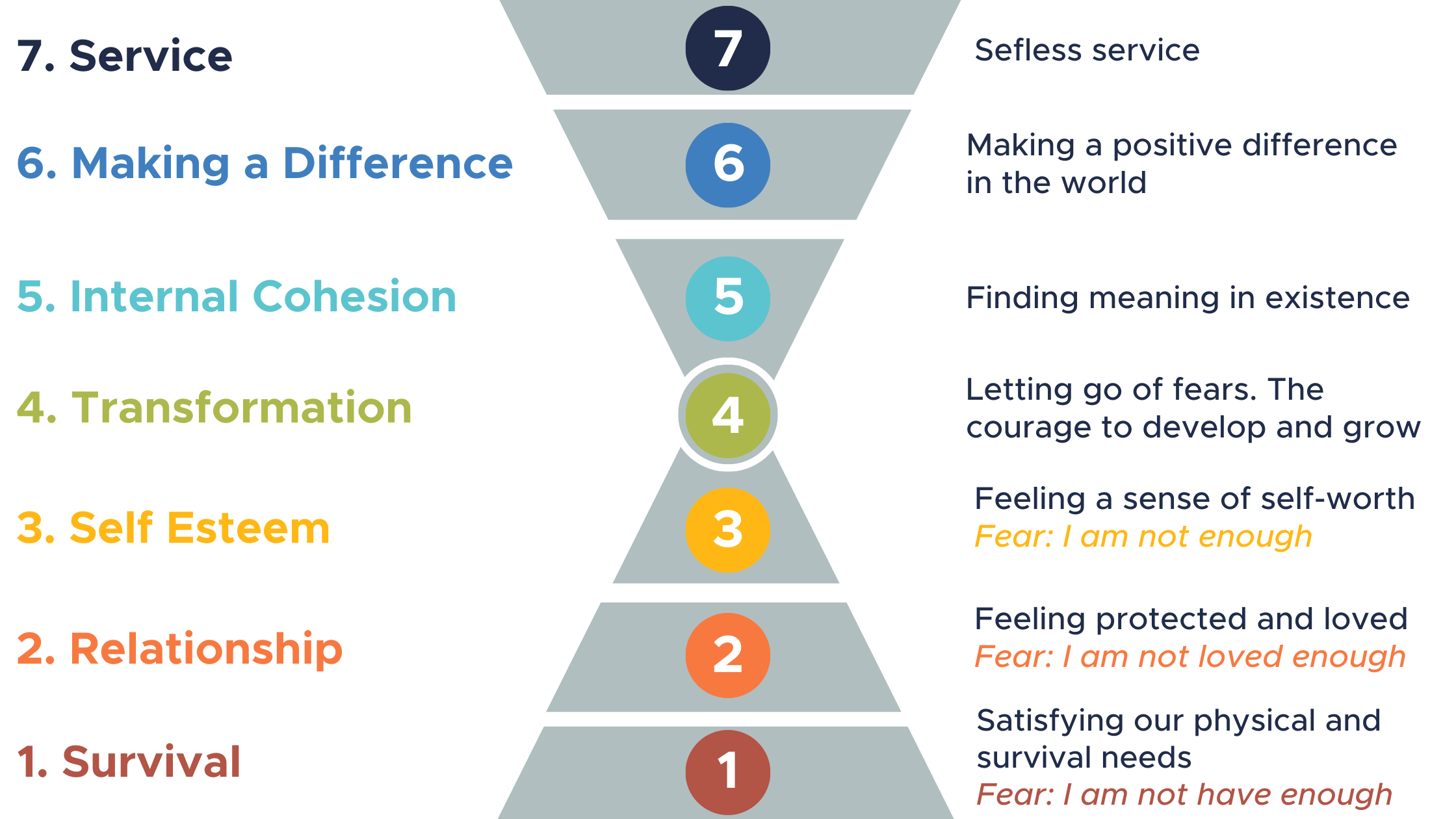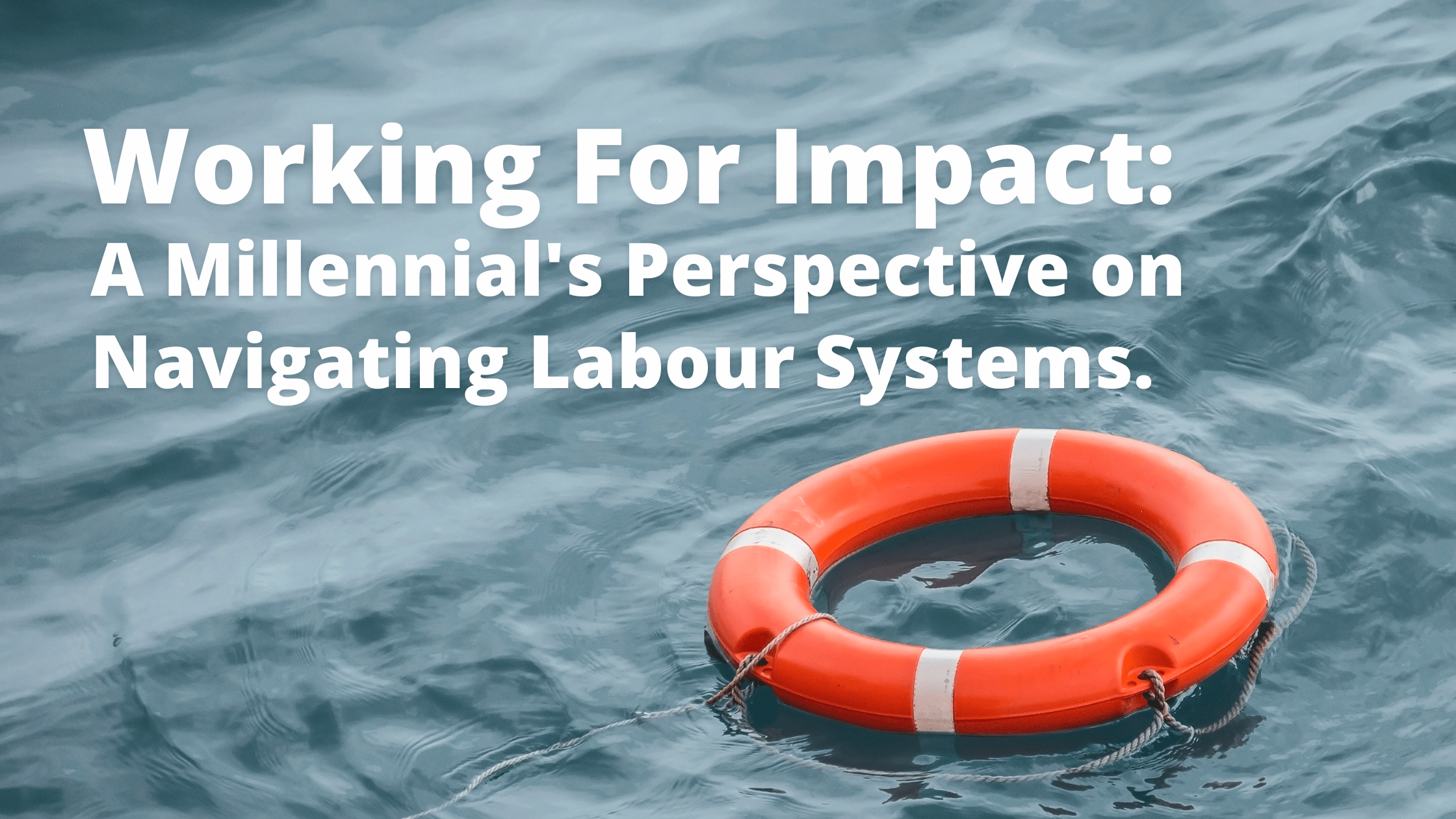
Lydia Phillip
Communications Manager
Okay, so I grew up reading (and still enjoy) dystopian fiction – Hunger Games, Divergent, Handmaid’s Tale, The Pretties, anyone? Dystopian novels seem to revolve around ‘work’ given that labour is such a major part of life and survival. Through the imaginations of authors, I’ve been introduced to various worlds of unorthodox work – the highly gendered labour, the hyper-surveillance of labour, work and life prescribed at birth – and, of course, the eventual uprising against the system (everyone’s favourite part, right?!).
In the future, do you think they’ll write dystopian novels about how early colonization and capitalism have forced us to labour for the past decades? Do they already? I don’t think dystopias are as far off from past and present society as we would like to think. And no, I’m not just talking about the ‘over-caffeinated zombies slogging through a 9-5, necks craning at desks 40 hours a week’ trope.
I mean, we are currently living through a global pandemic that is continuing to highlight systemic inequities. We’ve witnessed increases in wealth gaps and the exploitation of labour – especially from racialized and marginalized communities – as capitalism values profit over people. We’re living with a housing crisis and rising costs of living while the minimum wage remains comparatively stagnant. And while I have the privilege of writing this from home, some people are forced to jeopardize their and their loved ones’ safety by going to work jobs deemed ‘essential’ yet are still not earning a living wage or provided paid sick leave. That sounds pretty dystopian to me.
Critiques of capitalism are not new nor radical, not when the system is constantly failing the majority of people, especially those historically oppressed. So how do I navigate living and working in our current labour systems? My work must attempt to balance the systemic inequities. For me, this is putting my talent and energy into the For-Impact (nonprofit) sector.
How Generational Values Inform Work
I can’t grow up reading these books and not be interested in analyzing our current relationship with labour and how we may operate in the future. In the fall of 2019, I was one of 60 young leaders selected to attend the Youthful Cities’ “Future of Urban Work” summit. The conference was a follow-up to the Youthful Cities Canadian Index that holistically ranked cities based on what youth are looking for in a city around work and play. With many conversations and buzz phrases like the “future of work” and the way that it will affect Millennials and upcoming generations, the goal of the conference was to have youth at the center of the dialogue. One of the key themes we brainstormed around was ‘Employment’ and how affordable housing, equity, climate change, mental health, and technology would affect the future of work.
If you throw a bunch of 18-30 year-olds from different backgrounds and lived experiences in a room – what do you imagine we talk about? We discussed inequitable value assigned to labour and how our current system is flawed – disproportionately affecting marginalized communities. If you consider that historically the workplace was built by white men for white men, not much has significantly changed. We see evidence of this in the wage gap and how stereotypical “women’s work” is still undervalued and underpaid. There was interest around discussing the effects of implementing a “Universal Basic Income” and how that would alter how societies define “productivity.” One of the things delegates felt strongly about was that flexibility was the future. Rigidity and the 9-5 workday would not survive.
Regarding learning, we discussed society giving the same valuation of Indigenous and Afrocentric wisdom/ ways of knowing to institutionalized education – and what that could look like. Within the last year, it’s been encouraging to see organizations in the sector evaluate experiences in lieu of post-secondary degrees for their employment opportunities.
Making the Switch to the Sector
My experiences before entering the For-Impact sector taught me a lot about burnout, work-life balance, and managing and protecting my energy. I remember being so mentally and physically drained from routine late nights and uncompensated labour. My friends were worried about me, which honestly should have been enough of a sign that this was not a healthy space for me. And with all the literature on burnout, we know that this type of chronic fatigue is not sustainable – we eventually reach our breaking point.
And that’s when I found myself on yet another consecutive late night, tapping away at my keyboard. Nothing a late afternoon coffee can’t handle right? I remember that I was still working, because when I got the call that my grandmother (my Grammy) had passed away, I was communicating about a project with my boss. I broke the news to my employer, as I would be stepping away from my laptop for the rest of the evening.
After a restless night, in the early morning, I sent a message to my boss requesting to come in a little bit later that morning. The response I received, although I had shared the news less than 12 hours ago was, “Are you dealing with something personal or are you just tired?” So, feeling guilty I splashed some cold water on my face, applied a bit of makeup, poured some coffee into a travel mug and hustled myself out the door arriving to work around 9:30 a.m. instead of 9 a.m.
You can probably guess how the rest of the day went. Hint: not well. Although this was a challenging time to navigate, I’m thankful for the entire experience because I learned that empathy and my wellbeing is non-negotiable. It was from that point on that I have been intentional about how I work, what organization I work for, and how I need to be treated in a workplace – I recognize the privilege in being able to choose. I’m fortunate that it was so early in my career that this realization struck, and since then I have built my career around the For-Impact sector – inspired, growing, and valued.
The Sector as a Place for Youth
I believe that the For-Impact sector is a great place for youth to thrive. For someone whose values reflect the importance of making a positive impact, having an organization that aligns with my personal values is critical. I need my work to “Do Good” and to be able to make a direct impact with my day-to-day job.
My third day working at CSCNS fell on a scheduled session with Lauren Sears from Imaginal Ventures to discuss our organizational values. Beforehand, our team completed Barrett’s Personal Values Assessment, which is designed to be an extension of Maslow’s Hierarchy of Needs. Based on the values selected, you fell somewhere in the hourglass – the bottom tiers being labeled ‘self-interest’, the middle being ‘transformation’, and the top tiers labeled ‘common good.’

Lauren explained that the self-interest category includes the basic types of needs like stability and relationships that we develop from infancy to early adulthood. The transformation stage is typically where 20-30 year-olds fall as they’re navigating their personal and professional growth. The ‘Common Good’ tiers indicated by contribution, making a difference, and purpose are where those later in their careers and nearing retirement typically find their values represented. But, Lauren noted, Millennials are the first generation to throw a wrench into this design, having many of their values fall into the ‘Common Good’ category. Hopefully in the future, we’ll see this reflected in the sector demographics.
I often get asked the question of why like working in the sector, though it sometimes carries a stigma. I love the shift of mindset and language in celebrating what For-Impact organizations create versus focusing on deficits. The places I have worked, although not in the For-Profit sector, have felt very entrepreneurial in their management of people and resources. Within the sector, I have been given autonomy and have quickly grown my skills being able to innovate and often just run with ideas. In this type of trusting, collaborative environment, I’ve been given the space to learn from imperfect decisions. The wide range of projects that I’ve been a part of have led to developing new skills and networks that I would not have gained otherwise. I am a communications professional, but wow, I could also probably check off event planner, facilitator, project manager, finger-painter, coffee connoisseur, etc.!
A workplace is only as good as its culture, but the sector has been home to some of the most incredible, empathetic leaders and mentors I have met. With their people-focused approach, I felt that my contributions are valued, and my output is a product of my job satisfaction and work-life balance. I don’t feel like just another number in a company that punches in and punches out. Being able to have open, honest conversations about energy management and individual needs around mental health, balance, and flexibility is something that I appreciate about the sector.
In the For-Impact sector, I have found the lifestyle, energy, and values alignment that I love and need for thriving in a space! Lately, our conversations around decolonizing workspaces, anti-racism, and redefining the colonial ideas and embodiment of ‘leadership’ and ‘how we work’ have been validation as to why I’m here.
How we engage with work is the result of colonialism and capitalism – which were not made to benefit people equally. I want to live in a world where all work is valued, and people don’t labour because they must in order to survive (and sometimes just barely). Re-imagining work and what it could be is such an expansive and important topic. What if productivity wasn’t measured in the output of laboured hours, but the positive impact on the people or communities or the environment? It’s going to take an entire dismantling of the system to begin to repair the harm. For now, I will continue disrupting the status quo in my own way and focusing my energy on the work I believe can make a difference.
Written by:

Lydia Phillip
Communications Manager
Lydia oversees IONS’ external communications, branding, social media, and website development. She creates content and contributes to IONS’ work through championing the sector through her power in writing and storytelling.

Great post!
So well written Lydia, thank you for sharing.
Lydia, this is so clear and inspiring. Thanks so much for taking the time to put these thoughts down. The spirit of your writing is contagious. I wonder if dismantling the system and disrupting the status quo, one passionate person at a time, could be the same thing. I’d like to think so.
I love the energy and clarity of your post Lydia. And it is thought provoking and a compelling call for change in structures and systems as well as in values. Thanks for sharing.